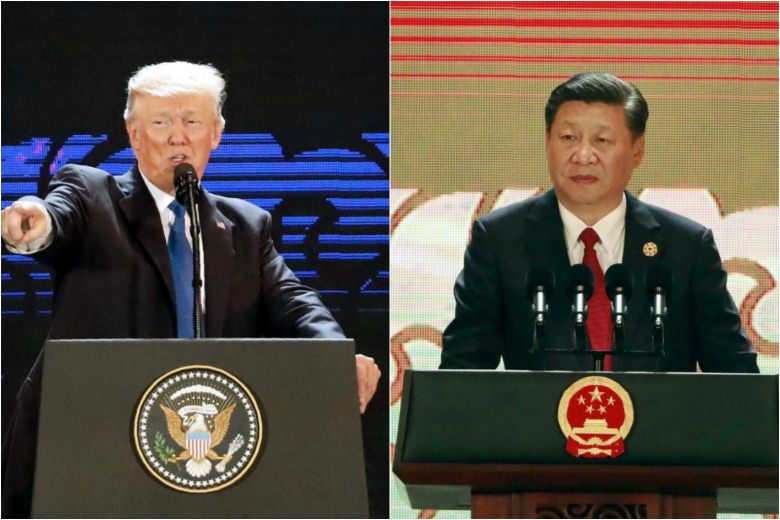A former sleepy fishing village turned Chinese silicon city developed uncannily on the lines of San Franciso’s Bay area, Shenzhen is staring at a miserable future as American President Donald Trump is systematically taking apart the city by razing one company at a time. Today, the biggest of Chinese tech giants, including the genome sequencing company, BGI, China’s premier electric IT and automobiles company, BYD gaming and communications tech giant, Tencent, China’s largest listed telecom company, ZTE and the global telecom firm Huawei, are based out of Shenzhen. However, after the trade wars and the Coronavirus pandemic, America has come down heavily on some of the companies such as Tencent and Huawei, which form the fulcrum of China’s Silicon city’s economy.
Shenzhen’s fortunes changed in 1987 after Rem Zhengfei, a Chinese People’s Liberation Army (PLA) veteran established Huawei here. The Southeastern Chinese city grew at a breakneck speed that came to be known as ‘Shenzhen speed’.
Almost three decades hence, Huawei emerged as China’s biggest private company and Shenzhen’s prized jewel. As of 2016, the global 5G tech giant accounted for about 7 per cent of the city’s economic output and was the single largest contributor to Shenzhen’s GDP.
The demise of Huawei
Huawei also became China’s only global telecom company with a staggering annual revenue of 123 billion US Dollars. However, the Chinese success story has come to a screeching halt off late as America makes China pay for creating demons that threatened the free flow of information and engaged in surreptitious espionage activities.
After the supply in the chain of components and parts originating from the U.S dried up, Shenzhen’s manufacturing and innovation division nose-dived with Huawei being the biggest casualty. SCMP has reported, “US sanctions on China’s Huawei spell trouble for Shenzhen economy”. The report suggests that the demise of Huawei’s global ambitions would cut Shenzhen to size.
And after all, Huawei is not the only company facing setbacks across the world, rather all major Chinese tech companies are facing some kind of issue that could collectively bring down China’s tech and innovation hub, Shenzhen.
Reported by TFI, Huawei has said that its “survival” is at stake after USA’s semiconductor (chip) export restrictions on the company. In May last year, the US had put a ban on American technology export to Huawei by its companies, but many countries in East Asia like Taiwan, Japan, and South Korea manufacture consumer electronics essentials using American technology.
Therefore, it was easy for Huawei to game the US export ban and import these products from other East Asian countries, but with new rules in place, even these countries have not been able to supply equipments to the Chinese giant.
Reported by TFI, Taiwan Semiconductor Manufacturing Company (TSMC), a Taiwanese company that manufactures semiconductors based on secretive American design had announced that the company would not be taking any new order from Huawei.
Read more: Chip Wars between Taiwan and China have officially begun. And Taiwan is winning big time
Tencent going the Huawei way
Moreover, the Trump government has decided to ban people from downloading TikTok and WeChat, the popular video-sharing app and messaging-cum-payments app respectively.
The Department of Commerce of the Trump-led administration said that users would not be able to download these apps from any platform because the American government is banning them on the grounds of national security.
WeChat has a total of 19 million users in the US, which is nothing compared to say TikTok. But for the people of China, living in the US, WeChat is a super-app. It offers a multitude of services including instant messaging, payment services, social networking, media updates, e-commerce and email services.
WeChat was used by Chinese expatriates for building online communities, and with its banning, every segment of Chinese Diaspora from journalists to investors and students/ researchers are going to suffer. The effect goes way beyond just cutting contact with families and friends. Within China, those who cannot contact their loved ones abroad will also be angry at the CCP itself.
Tencent, the parent company of WeChat is staring at a bleak future and in turn, the city of Shenzhen is looking at another company losing out on business.
Xi Jinping’s failed last-ditch plan to revive the Chinese silicon city
The fear of losing out on its biggest tech city is palpable withing the Politburo of Beijing as President XI Jinping delivered a 50-minutes long keynote speech on the occasion of the 40th anniversary of the establishment of the Shenzhen Special Economic Zone on Wednesday to infuse positive sentiments within the investors of the Silicon city.
However, it was really too desperate on Xi Jinping’s part to deliver a keynote speech and somehow fuel positive sentiment about the Chinese economy, which currently is in a miserable state. Jinping’s speech was high on rhetoric and low on substance, consequently, it went in vain as Chinese stock markets declined despite his unprecedented attempt to enthuse the Chinese economy.
Donald Trump has methodically attacked China’s technological hub, and Beijing at the moment is running amuck like a headless chicken. Xi Jinping and his CCP are sweating as one unicorn company after another is going down into the ground, courtesy the administration of Donald Trump which has not hesitated in bringing down the sledgehammer with utmost ferocity.








